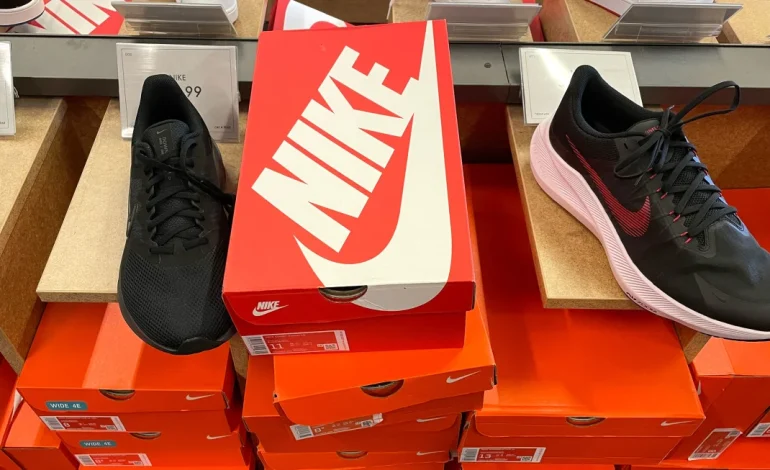Nike Shakes Up Leadership Amidst Struggles and Rising Competition

Nike announced the retirement of CEO John Donahoe, effective next month. The athletic giant is facing mounting pressure from a slowing consumer market, intense competition, and criticism over its own strategic missteps. Donahoe will be succeeded by Elliott Hill, a veteran Nike executive, effective immediately, CNN reports.
Shares of Nike surged 9% in after-hours trading following the announcement, offering a glimmer of hope for investors who have witnessed a 24% decline in the company’s stock this year.
Nike’s struggles are rooted in a confluence of factors. The company faces a consumer slowdown, with shoppers shifting away from discretionary purchases like expensive sneakers and athletic apparel, opting instead for basics and experiences. This shift has been exacerbated by fierce competition from upstart running brands like Hoka and On, which have successfully captured the attention of consumers with innovative designs and marketing campaigns.
Analysts and investors have been calling for changes at Nike for months, and the CEO switch is widely seen as a positive step in the right direction.
“The selection of Hill signals a much more significant commitment” from Nike’s board to enact a turnaround, Brian Nagel, an analyst at Oppenheimer, noted.
Nike’s attempts to modernize its distribution strategy have also come under fire. The company’s move to reduce its reliance on traditional retailers and shift customers towards its own direct-to-consumer channels, including online sales and physical stores, backfired. While Nike claimed this strategy would increase profits, it resulted in a decline in sales as the change was implemented too abruptly.
The company has since begun to restore relationships with some of the retailers it had initially cut off, acknowledging that it underestimated the importance of third-party partners.
Nike’s challenges are not unique to the sportswear giant. Other major brands, including Lululemon (down 46% this year) and Under Armour (down 8%), are facing similar pressures.








